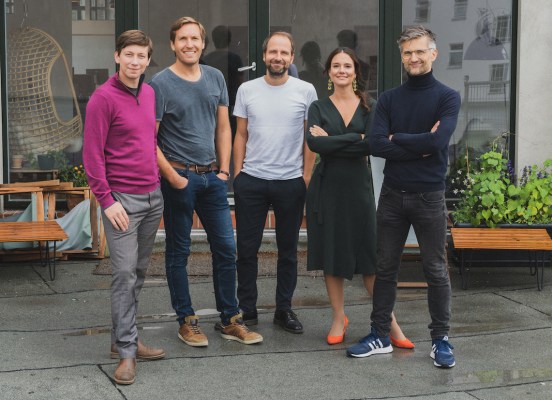You might have previously thought that Ecosia was a nice-to-have search engine that planted trees when you punched-in a search term. Lovely. How nice. But no. Ecosia’s founders and the network around it are far more serious about climate change than that superficial assessment might suggest. In March 2020, just before the world started to close down amid the pandemic, that network got together and decided enough was enough: a new VC fund was needed to tackle the climate crisis in a different way.
So today, World Fund, a new climate tech VC, is launching with a €350 million fund targeting startups building technology that can help decarbonize the planet. World Fund claims it’s Europe’s largest dedicated climate tech VC.
How did they build that size of a fund that fast? Well, it contains over 60 investors including current and former European tech founders, but also very few institutional LPs, hence why it could raise in such a relatively short time.
Incubated by Ecosia, the fund will focus on energy, transport, food and agriculture, manufacturing and buildings. As we’ve seen, the built environment is a huge contributor to CO2. Cities consume over two-thirds of the world’s energy and account for more than 70% of global CO2 emissions.
World Fund says its mission will be to save 2 gigatons of emissions by 2040 — the equivalent to 4% of all global emissions. This is pretty good for one single firm, although the scale of the issue is enormous, with the world’s emissions needing to be halved by 2030 for the planet to have a chance of escaping 1.5 degrees warming.
Key to this is using what it calls the Climate Performance Potential (CPP) as a key leading indicator for funding. Each company World Fund backs will need to be able to demonstrate it has the potential to reduce greenhouse gas emissions by at least 100 megatonnes of CO2 every year, said the firm, as “only companies enabling a decarbonized world can become the most valuable companies of the next decade.”
Danijel Višević, general partner, World Fund said: “Europe urgently needs to stop continuing business as usual, relying on the continued use of fossil fuels. This continent has the research, innovation and political awareness to lead the world in the fight against climate change. However, until now, there hasn’t been the venture support to ensure these solutions go from idea to success. This is why we’re launching the World Fund, to be the ultimate partner to back the tech entrepreneurs of Europe that will create the most valuable companies of the next decade while tackling the climate crisis.”
Doubling down on Europe as a place to make climate tech investors would seem to make sense.
Indeed, 50% more climate tech patents have come from Europe than the U.S. and China between 2019 and 2020. But only €6 billion of VC funding went into European companies up to 2013 compared to €25 billion and €17 billion invested in the U.S. and China, respectively.
Plus, according to World Fund’s research, there are 41 funds in North America with more than $100 million assets under management, compared to only six in Europe, and the majority of specific European climate tech VC funds have less than $40 million to back disruptive technology.
Furthermore, World Fund says there were more climate tech companies founded in Europe (102) between 2019 and 2021, than the U.S. and China combined (80).
Meanwhile, the European Commission’s Horizon 2020 fund is contributing €33 billion to climate-relevant R&D.
Making up the fund will be Tim Schumacher, co-founder of domain marketplace Sedo (and investor in Ecosia, Zolar, gridX, Pachama and CarbonCloud); Danijel Višević, a former journalist who covered climate tech, startups and venture capital; and Daria Saharova, who worked at SevenVentures and Holtzbrinck. The team also also includes Craig Douglas, formerly with SET Ventures; and Christian Kroll as a venture partner, the founder and CEO of Ecosia.
World Fund has revealed that it has invested in three companies so far: a meat-replacement startup, one in waste reduction, and Qoa Company, which replaces Cocoa, a large source of CO2 emissions in agriculture.
Global “competitors” (more like fellow travellers) to World Fund include Astanor, Pale Blue Dot and 2150 VC, which this month raised a $312 million fund.
The investment team also includes experts such as mechanical and chemical engineers, physicists and a mathematician. LPs include Trivago co-founder Rolf Schrömgens; Econos, a sustainable investment platform founded by Alexander Samwer; serial female entrepreneur and author Verena Pausder and her husband Philipp Pausder, the founder of Thermondo.
In addition is a leading scientific and advisory board — including Max Planck Institute of Innovation & Entrepreneurship Professor director Dietmar Harhoff (who is also advising the German government and is a recipient of the Bundesverdienstkreuz – Order of Merit of the Federal Republic of Germany); academic director and Scientists for Future founder Dr Gregor Hagedorn; and Deputy Head of Responsible Research at Fraunhofer Institute Simone Kaiser — to help advise World Fund.
Tim Schumacher, general partner at World Fund, added: “I’ve been investing in technology for over 10 years now, both in regular software and in climate tech, and during that time my climate investments outperformed my other investments. Undoubtedly, one of the reasons for this is the caliber of people attracted to working on the largest problem humanity faces. At World Fund, we recognize that to tackle climate change, investing in new technology needs to be profitable and scalable.”
Daria Saharova, general partner at World Fund, said: “There’s a huge opportunity to back the startups helping to roll back the clock on the climate crisis and transform the way whole sectors operate. From farming startups to battery technology, startups addressing climate change need more funds with deep pockets and a commitment to support dynamic companies, to ensure they can fulfill their potential.”
